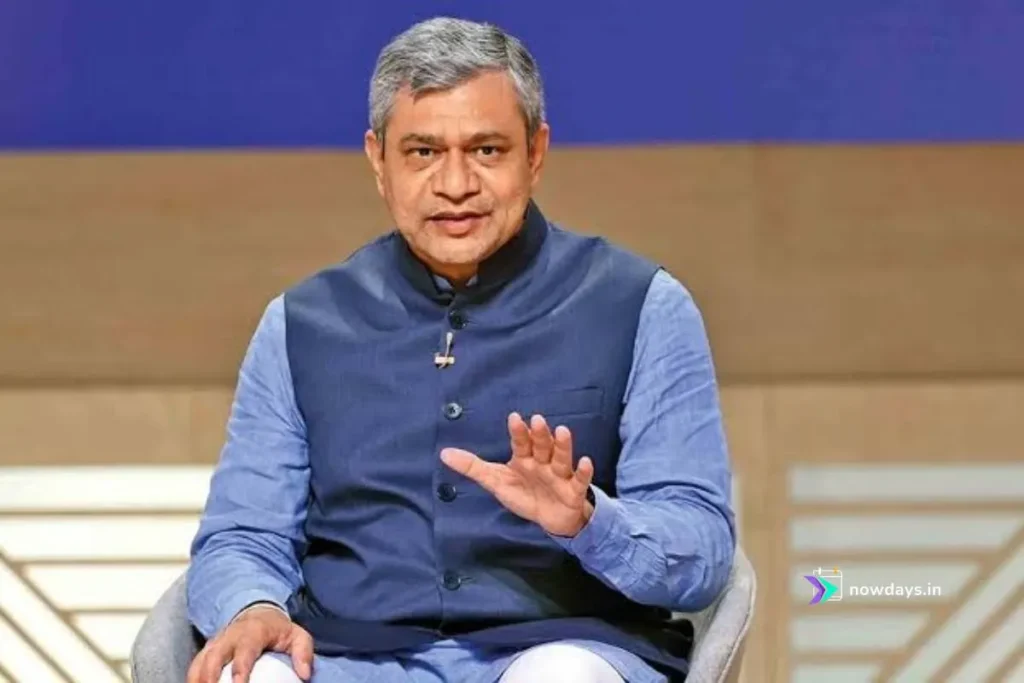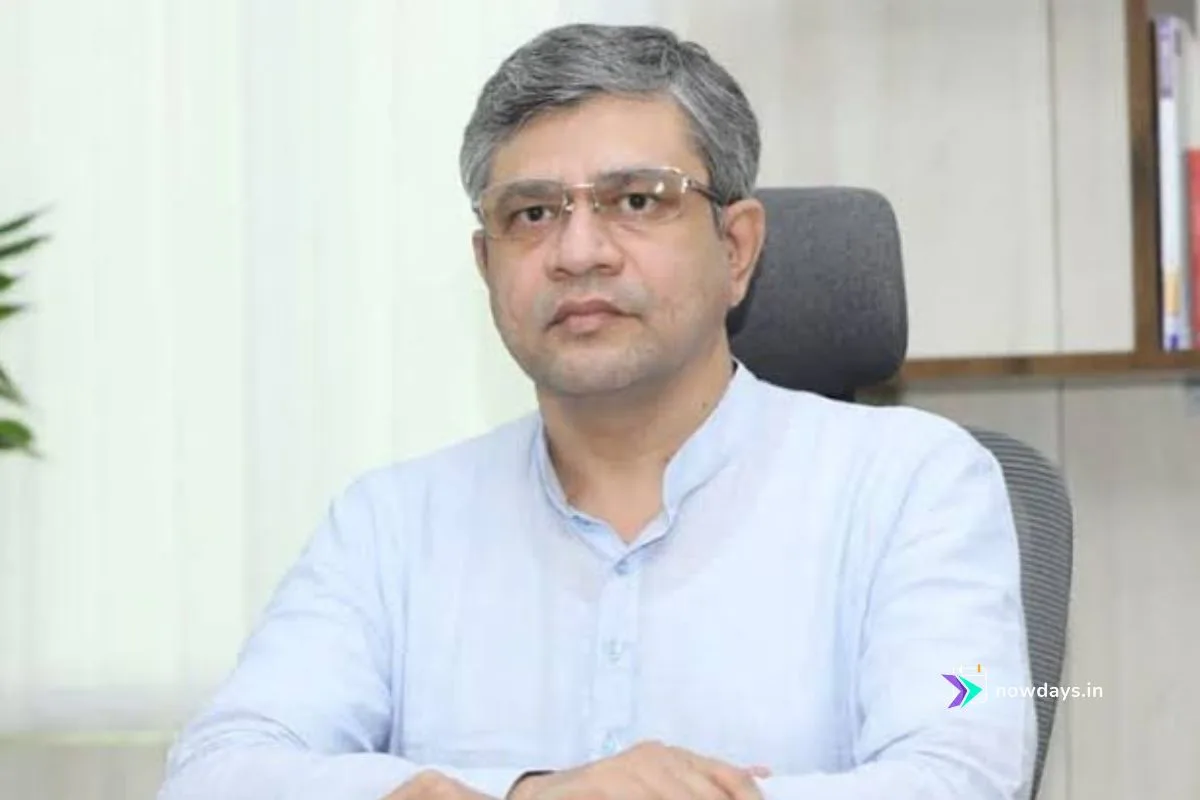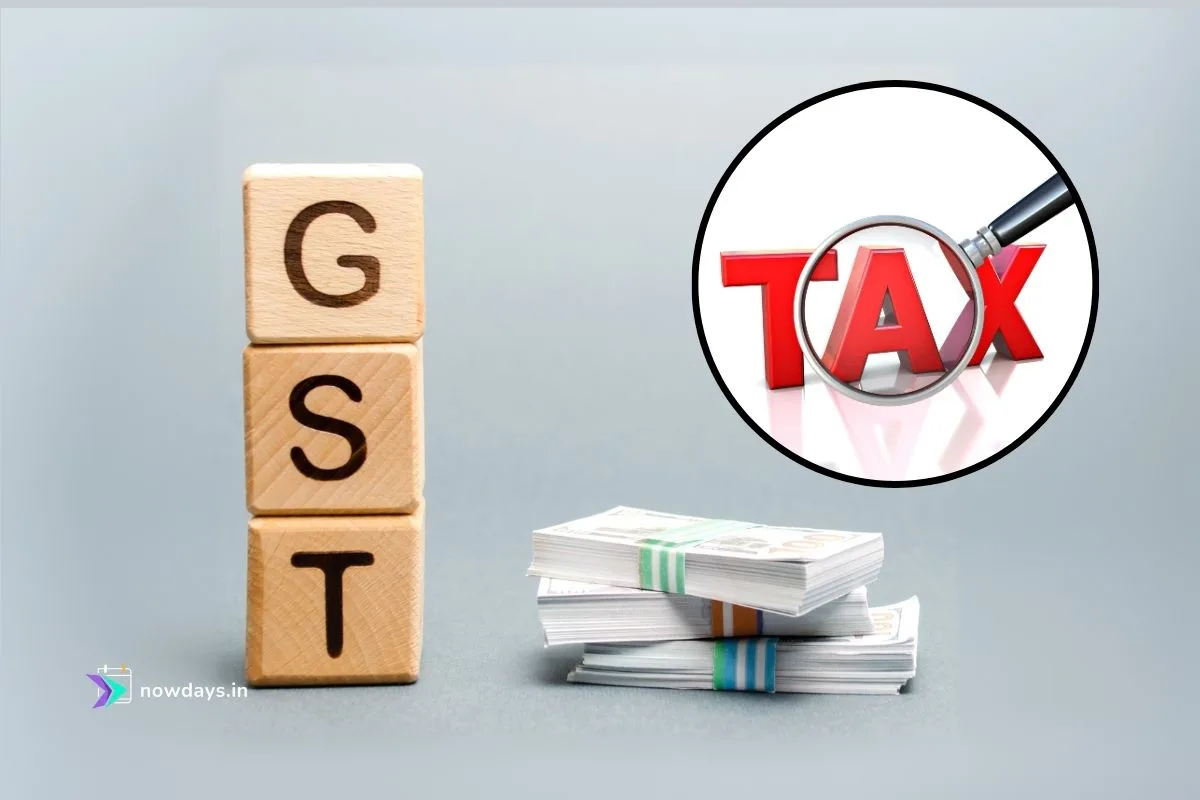New Delhi: Adler Industrial Services Pvt. Ltd., a Gurgaon-based metals firm co-founded by then-IAS officer Ashwini Vaishnaw in 2015, has seen a meteoric rise in revenues – from just ₹45 lakh in its first year (on a ₹1 lakh capital base) to over ₹323 crore by 2020-21. Vaishnaw’s family remains on Adler’s board, and his declared shareholding in the company is about ₹113.9 crore. The unusual growth and ownership linkages have drawn scrutiny from analysts and political opponents, prompting questions about the firm’s business model, official disclosures, and compliance with ministerial ethics rules.
Origins and Business Profile of Adler Industrial
Adler Industrial Services Pvt. Ltd. was incorporated in late 2015 with an authorized and paid-up capital of just ₹100,000. MCA records classify it under NIC Code 7499 (“Other business activities n.e.c.”), and company-data profiles describe it as a metals and minerals trading/distribution firm based in Gurgaon. Ashwini Vaishnaw (then Ashwini Vaishnav), along with his wife Sunita, is credited with founding Adler. Family members – son Rahul and daughter Tanya – are listed as current directors alongside Sunita. (Ashwini Vaishnaw himself served as a director until October 2020)
From inception, Adler’s sole major client was Thriveni Earthmovers Pvt. Ltd., a large Odisha-based mining contractor run by B.L. Prabhakaran. According to filings and media reports, Adler initially provided unspecified “services” to Thriveni. In 2019, Adler shifted its business to trading iron-ore pellets: it began buying pellets from Thriveni’s new venture (Thriveni Pellets Pvt. Ltd., in which Adler was a partner) and reselling them on the open market. At peak, Adler reported high gross margins on these trades (for example, ~43% in FY2019-20) as it moved large volumes of pellets. Notably, filings show Adler kept virtually no inventory – buying and selling pellets back-to-back each year.
Vaishnaw’s Role and Ownership Stake
Ashwini Vaishnaw (born 1970) is a former IAS officer from Odisha who entered the private sector after voluntary retirement in 2015. He co-founded Adler with Sunita that year, and also helped set up related firms (such as Thriveni Pellets Pvt. Ltd.) tied to the mining sector. Corporate records list Sunita Vaishnav as an original director from 2015; their daughter Tanya and son Rahul joined Adler’s board in 2017 and 2019 respectively.

Although Ashwini Vaishnaw stepped down as director in October 2020, he retained a substantial equity stake through family shareholdings. In affidavits filed during his 2024 Rajya Sabha candidacy, Vaishnaw reported owning 800 Adler shares (book value ₹91.12 crore) and another 2,000 shares (book value ₹22.78 crore). In total, his declared Adler holdings were worth roughly ₹113.9 crore – a huge increase over the original ₹1 lakh investment.
Read More: Barrier-Free Toll Plaza in Gujarat: India’s First Multi-Lane Free Flow System
Company filings reveal that until 2019, Adler’s major expense line items were salaries paid to its two directors, Ashwini and Sunita. For example, in FY2016-17 the company earned ₹3.79 crore in revenue but paid out ₹2.26 crore of that to Ashwini Vaishnaw and ₹0.18 crore to Sunita as salary. By comparison, only modest sums went to other employees. (This pattern continued through 2017-18.) Critics note that Adler never employed a large workforce nor built production capacity; its “business” mainly consisted of these associate company transactions and management salaries.
Revenue Growth and Key Milestones
Adler’s rise has been dramatic. The first-year turnover (FY2015-16) was ₹45 lakh. After two more years of modest growth (₹3.79 cr in 2016-17; ₹4.51 cr in 2017-18) – largely from consulting fees or services – the firm’s trajectory shifted. In FY2018-19, Adler reported only ₹1.65 crore in sales (reflecting the end of certain fees from Thriveni).
After Vaishnaw’s election to Parliament in 2019, Adler became a trader: revenue leapt to ₹48.02 crore in FY2019-20 and then to ₹323.27 crore in FY2020-21, a growth of roughly 700× from its initial size. In FY2021-22 the revenue rose further to about ₹348.4 crore. In summary, filings show Adler’s revenue “rose from Rs 45 lakh to over Rs 323 crore within six years of inception”. Meanwhile, the company took on substantial debt: its filings list over ₹665 crore in “settled loans” by mid-2025, though details are opaque.
- 2015-16: Company founded (capital ₹1 lakh); revenue ₹45 lakh.
- 2016-17: Revenue ₹3.79 crore; salaries to directors consumed most income.
- 2017-18: Revenue ₹4.51 crore; directors again took outsized salaries.
- 2018-19: Revenue ₹1.65 crore (shift from services); began pivoting to pellet trading.
- 2019-20: Revenue ₹48.02 crore (iron pellet trading).
- 2020-21: Revenue ₹323.27 crore (peak growth).
(This timeline is drawn from MCA-filed annual returns and media reconstructions inkl.com thenewsminute.com)
Business Model and Clientele
Adler never manufactured its own goods. Instead, its audited statements suggest it operated as a trading/distribution intermediary in the iron ore/steel value chain. Early on, Adler’s only client was Thriveni Earthmovers, a mining contractor accused of widespread illegal mining in Odisha. After partnering to form Thriveni Pellets Pvt. Ltd. (TPPL) in 2018, Adler bought pellets from TPPL and resold them.
In effect, Adler was buying inventory (iron-ore pellets) from an affiliate company and selling it with a profit margin. Public filings and news accounts note that Adler’s inventory lines were consistently zero – purchases and sales happened nearly simultaneously, suggesting no long-term stockpiling. The net result was a huge jump in reported revenue but relatively modest net profits (mostly eaten by director salaries and interest on loans).
No mainstream press statements detail Adler’s trade secrets, and the firm has no public website. Government filings do not explain what “services” Adler provided to Thriveni before 2019. Companycheck data only list it as a “metals and minerals” enterprise in trading. In late 2024, Lloyds Metals & Energy Ltd. announced it would acquire a stake in Thriveni Pellets from Adler for ₹200 crore, indicating significant valuation in these mining-related assets.
Official Disclosures and Records
Vaishnaw has publicly declared his Adler holdings in election affidavits, and his company’s records are traceable on the MCA portal. The declarable asset values (₹113.9 crore) match media reports. MCA data (via company databases) confirm Adler’s tiny capital base (₹1 lakh) and family-run directorship. The firm’s AGM and financials are up to date (latest balance sheet filed March 2024). Notably, regulatory filings show Adler’s only business address in Gurgaon, and no subsidiaries.
In Parliament and media, Vaishnaw has defended his business interests on social-impact grounds. A Hindustan Times interview quoted him saying his goal “was to create an enterprise that could sustain 1,500 families…working toward…sustaining 5,000 families” through his Odisha ventures. He emphasized that he withdrew from business management upon entering politics. In practice, he did resign as Adler’s director in October 2020, shortly after joining the Union Cabinet. In statements, Vaishnaw attributed any rewards from Adler to long-term mining investments, and denied any impropriety.
Controversies and Conflict-of-Interest Concerns
Adler’s growth and Vaishnaw’s tie to Thriveni – a company long accused of illegal mining by Odisha’s MB Shah Commission – have become a lightning rod for critics. Opposition leaders accuse Vaishnaw of cozy ties with Odisha’s mining “mafia”. In 2019, Congress MP Narasingha Mishra commented that “those who loot the mineral resources of the state are sent to represent us in the Rajya Sabha,” an apparent jab at Vaishnaw’s Adler connections. Fact-checkers note that Adler was previously dubbed a “shell-like” entity by activist accounts. Reddit and social media threads have labeled it a “shell company” through which Vaishnaw benefitted unduly, though no formal legal charges have been filed.
Read More: How Many Direct and Indirect Jobs Has Maruti Suzuki’s Gujarat Plant Created in Gujarat?
Critics also point out that Adler’s expenses were heavily skewed to Vaishnaw’s compensation. A journalistic investigation found that “most of Vaishnaw’s company’s expenses were directed toward [his and his wife’s] remunerations” and that there was little evidence of a large workforce. In other words, whereas Vaishnaw claims the enterprise helped thousands of families, publicly available accounts show Adler paid almost no salaries beyond the directors’ pay.
Vaishnaw has declined to detail Adler’s transactions in interviews, saying only that he left management and that his stake was part of his declared assets. The company itself has made no press release. As a minister, he has not responded on record to these allegations, beyond the 2019 quotes. No official probe has been announced into Adler’s accounts.
Compliance with Ministerial Codes and Ethics
Indian ministers must follow a strict Code of Conduct (Ministry of Home Affairs guidelines). Under these rules, a new minister must “sever all connections, short of divesting … ownership, with the conduct and management of any business” in which he was interested before taking office (mha.gov.in). In Adler’s case, Vaishnaw did resign from all directorships by October 2020, complying in form with this clause.
However, the code also stipulates that if a minister transfers business interests, they should not transfer management to a spouse or husband. Adler’s governance arguably conflicts with this: after Vaishnaw stepped down, his wife Sunita (co-founder) and their adult children remained on the board. Transferring Adler’s effective control to his wife may breach the spirit of the rule barring spousal succession (mha.gov.in).
Further, if a minister’s prior business had major dealings with government (licenses, contracts, or central procurement), the code requires full divestment of both ownership and management. While Adler’s clients (Thriveni and TPPL) were nominally private companies, Thriveni’s mining contracts involve state permits. Ethics experts note that India’s conflict-of-interest safeguards rely heavily on self-enforcement, and many such transfers to family members (including spouses) have escaped legal scrutiny. In Vaishnaw’s case, no formal clearance or public review was sought; he simply disclosed Adler in his asset returns.
On the political front, no ruling-party official has publicly challenged Vaishnaw. Media commentators have debated whether such a case merits an investigation or at least a detailed inquiry. Some observers argue that the letter of the ministerial code was followed (he quit as director) while others feel the transfer to family undermines its intent. So far, neither the Prime Minister’s Office nor the Ethics Committee of Parliament has commented on Adler or asked Vaishnaw for clarification.
Industry and Expert Reactions
Corporate governance analysts say Adler’s history would typically trigger deeper due-diligence. For example, credit rating reports or bank loans for an SME growing so fast would normally demand audited records – yet Adler’s published filings show no inventory, huge inter-company transactions and bloated salaries. The sharp rise in revenue is “unexpected for a company with such a tiny capital base,” one finance expert observed (off the record). In social media, financial journalists have likened Adler’s growth to the famed “one rupee stock” stories of the 1990s, raising questions about transparency.
Conversely, some commentators note that Vaishnaw had no legal obligation to divest ownership (only management), and that his multi-decade corporate career adds context. His supporters point out that having a stake in a family business is common for businessmen-turned-politicians, and that no law requires him to sell his shares when he became minister. They also note that Vaishnaw publicly disclosed Adler in his affidavits and tax returns, arguably meeting disclosure norms. Government sources emphasize that as Minister of Railways and I&B, Vaishnaw has no direct role in mining regulation, reducing any direct conflict.
In sum, Adler Industrial’s extraordinary expansion — from ₹1 lakh capital to ₹323 crore revenue in six years — is a striking statistic. The firm’s opaque business arrangement and family links to Union Minister Vaishnaw have drawn political fire. While no law has been broken on record, critics say it raises ethical red flags, and they urge a closer look at the facts. As of mid-2025, Adler remains active on paper, and Vaishnaw continues to steer India’s Railways and IT ministries.
Sources: Official MCA filings and company databases (zaubacorp.com, thecompanycheck.com); Ashwini Vaishnaw’s election affidavit(myneta.in, fomyneta.info); media investigations and news reports(thenewsminute.com, inkl.com); Ministry of Home Affairs ministerial code(mha.gov.in); Hindustan Times interview; Parliament and opposition statements.








